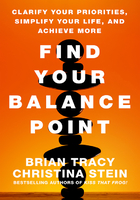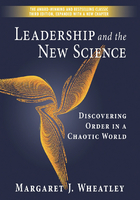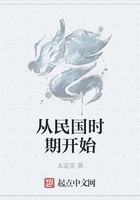WHY WE SEE PEOPLE AS OBJECTS
I returned home from my third research trip with tremendous reluctance; I knew what I was going back to, and I didn't think I could face it again. I sat in the car, looking at our tiny apartment through a dreary, unenthusiastic rain. I did not want to go in to my unappreciative, feckless husband or my quarrelsome children, who whined and complained through the homework and chores I had to make them do. I did not want to go in and pretend that I was happy to be home, when in reality I had been far happier away.
The simple truth is that I was miserable at home. Miserable and disappointed and trapped in a way that I think is familiar to many people: I felt oppressed and restricted because I was surrounded by people who, one way or another, had let me down. Acknowledging this feeling is important because it is precisely what we want to shift out of.
For me, it wasn't that I didn't love my family—all of them. It was just that I didn't feel happy around them. I felt burdened and overwhelmed. And I realized, sitting there, that much of the burden came from the feeling that I was under a microscope. If I got cranky (because I saw how much laundry had piled up or my flight got in very late) and snapped at my husband, he would immediately fight back with something hurtful. If I raised my voice at my son who never put his dishes away, he would roll his eyes scornfully and say “Don't freak out,” and no one would take my side.
Spending so many hours in nursing homes had shown me such a friendly, vibrant way of living that my slow, dreary home life stood out in sharp relief. A group of people working together to help others, I learned, creates an atmosphere of vitalizing contentment you could wear like a soft hug. In one facility, a social services director was having trouble with patients not being ready for outside appointments, and in a staff meeting the facility management director volunteered to have his housekeeping staff handle reminders since the “nurses are always so busy.” Administrators walking me through their facilities would quietly pick up dropped candy wrappers from the hall and throw them away without recrimination. I entered a small office where staff members had written “We love you!” “Melinda is the best!” all over Melinda's whiteboard. In hours and hours of observation, the most common type of conflict I had witnessed was two or more staff members each insisting that the other was the best/kindest/most devoted.
Out among these people, I felt as though I were basking in a warm glow. Returning home was like falling back into a desolate chill. And I felt the difference to the bone after this latest trip because I had just encountered the apotheosis of all I was missing in the form of a single person.
The Doug Coulson Problem
Doug Coulson is a human resources (HR) executive at HG and a man who will remind you of Santa Claus. He lacks the long white beard (to be perfectly honest, there's a pretty thorough lack of hair), but he is comfortably round and kind looking in the way we imagine Santa Claus physically, which is very handy for the purposes of describing him in a book. He speaks clearly and steadily without pauses or ums and with deep intelligence and infectious passion. He also, in some magical fashion, makes you feel the same way you imagine you'd feel in the presence of Santa Claus: important and beloved. You feel like a little kid with a man whose whole life has been devoted to loving little kids and deciding they've been good.
He told me he had worked as an executive in another nursing home business whose culture was significantly driven by fear—fear of being fired, fear of being yelled at. Like so many good people, he felt he had no choice but to adopt the currency of fear to survive. He was still trying to get rid of bad habits he picked up in those days, he told me, though I found it hard to imagine. He also said he had been aware of the peculiar ethos of the company I'm calling HG. “I saw it from afar,” Doug said with his warm-butter voice, “and I yearned to be a part of it.”
He had, of course, suspected that all the HG stuff might be too good to be true. “When I first came to [HG] I thought, ‘Can we really achieve the kinds of results we need to achieve while running a business like this?’ And honestly, I was just waiting. I was just waiting, like: ‘Well, it's month three. Nobody's yelled in three months. When are [chief executives] Phil and Matt going to come in and just start screaming?’
“I slowly but surely realized there's a much better way,” Doug went on, “and this is it.” I asked him what one thing he thought I needed to know to understand HG, and he said, “The thing that I need for you to know is that I love Matt and Phil so much that I would do anything for them. And that's the key. . . . When I was on the executive team, we loved each other so much, we cared for each other in such a way that there was an incredible amount of unity, an incredible amount of satisfaction just from being together and working on issues. So for me the key to HG is all love.” This is not, by the way, language that all of us can use in our offices—I get that.[1] But if you replace love with respect, admire, trust, or another word more suited to your own environment, you'll see that Doug is describing what would be, to most of us, an ideal working environment, with teamwork and mutual support and safety.
To many of the other administrators in HG today, Doug Coulson is the personification of the entire project of running a company by seeing people as people. One of his newest hires put her finger on the heart of why: “He looks at you,” she told me, “like you can do no wrong.”
It was like a knife in my heart to realize, sitting uselessly in that cold car on that wet, dark night, that I had no Doug Coulson in my life. I was on no team of people working together and loving one another. Nobody ever looked at me like I could do no wrong. Other people had that—all the people at HG had that—and I did not. My husband seemed to look at me like I could only do wrong.
And it was too late to do anything about it. I'd always tried to do the right thing, but something had gone wrong; my husband had changed, and I was stuck with the new him. This dark dreariness was just the reality for me, the long, endless years stretching away through a dismal fog that couldn't even rain properly. Researching HG had only made things worse. I had caught a glimpse of a better life, I yearned for it, but because of the marriage and family I was stuck in, I could not have it.
I sat in my car for as long as I could justify it, dreading going inside, the condensing fog soaking me with the knowledge that no one in my life looked at me like Doug Coulson did.
What's most amazing, as I now look back on that evening, is how desperately, blindly, tragically wrong I was about everything I was thinking and feeling in that car. It's not that I wasn't miserable—I most definitely was—but I was wrong about why and about whom to blame, and whether I needed a Doug Coulson, and I was completely wrong about the impossibility of ever having a vibrant, happy life. In fact, I was wrong in almost every conceivable way—Mrs. Wrongetta McWrong. The fact is, I have a great life now, alongside the very same people with whom I was once miserable, even though I've never seen Doug again. I had a tremendous shift, and from my new vantage point, I realized that the feeling that I was trapped by the personalities of others was a delusion.
Later in this book we'll see exactly how a person like me can experience clarity, healing, and wonder and how it all arises from a shift toward truly seeing people as people. But first, I need to tackle the objection you have been too polite to raise until now: Of course I see people as people, you've been thinking. How else could I see them?
Good question. To understand the answer, we need to don some intellectual hard hats and take a short tour of the philosophical substructure at play here.
Warner, Arbinger, and HG
The HG approach to business has its roots in, of all things, academic philosophy. The first and principal stop on our tour, in fact, is at the desk of emeritus professor of philosophy and Arbinger Institute founder C. Terry Warner. Warner looks and acts exactly the way you might imagine he does. Just picture a philosophy professor, and—that's right, you've got it. He looks exactly the way a thinker of deep thoughts ought to look. His hair is gray, his face is deeply lined with introspection, his voice is low and smooth and authoritative, his home office is literally covered with books he has actually read. He always has the air of being in the middle of discovering something new and weighty and exciting, as though every thought is a miracle.
In his three decades of scholarly life, Warner relentlessly pursued a set of questions about our deepest motivations as human beings. His answers grew into a distinctive and comprehensive account of human behavior and emotion that is at once provocative and inspiring. We can't do it justice here, but I urge you to read Warner's Bonds That Make Us Free and the Arbinger Institute's Leadership and Self-Deception;[2] the payoff is worth it.
In the meantime, the key point for our purposes is this: sometimes we go around in life seeing other people as though they were objects, set out for our use or put in our way, and whether we find them annoying or distracting or helpful, it is without concern for or interest in their unique internal lives. We recognize them intellectually as people, of course, but we don't value them for their humanity as such. We value them the same way we value objects—only insofar as they are useful or troublesome to our own interests.
A chair, for example, is an object. The way I think of it can take many forms—maybe I love it because it was handed down from my grandmother or resent it because it was a gift I don't like but can't get rid of, maybe it's comfortable, maybe it's just for show, maybe I have to treat it delicately, or maybe it's so sturdy I can stand on it to hang curtains. Whatever the case, I don't worry about whether it feels pain, has opinions, or is being used the way it wants to be. I paint it or reupholster it or throw it out depending on what I want or need. It won't dust itself, tighten its screws, fluff its seat cushion, or do anything at all to change itself; if it's broken, I have to fix it.
We all too often see other people in an analogous way—as functional or decorative items to be used, ignored, or enjoyed without giving any thought to their experiences, preferences, sufferings, or desires. We also see them as static: they won't change or improve without our help and input. And if we don't like them, we see them as needing to be fixed.
Seeing others in this one-dimensional, shallow way happens to the extent we are self-absorbed, caught up entirely in our own plans and interests. When my own concerns are taking up all the energy of my mind, the people around me matter to me only to the extent they impact those self-directed concerns. In this frame of mind, since I leave no room for their inner experience to call to me, I see others not as people but as objects, as though they have no inner experience at all. As human bodies they may be helpful to me or amusing or troublesome or no use whatsoever. They are in this way only as real to me as any other object in the physical world, and I care about them the same way I care about those objects; they may in fact be very important to me in function, but their own infinite personhood never crosses my mind. I don't think about their perspectives or their troubles, I don't wonder why they see things the way they do, and I don't feel motivated to help them (except maybe to further my own interests). Seeing them with my distracted heart as human-shaped objects, I cannot help but treat them as though they were human-shaped objects.
But of course, the people around you and me are not objects! They are people, with their own histories, fears, hopes, loves, wishes, dreams, and disappointments. They are as real—as astonishingly, unfathomably, breathtakingly, humanly real—as I am. They have their own backstories and struggles and their own perfectly legitimate way of seeing things that will certainly, unpredictably, differ from my own. They are, in a very real sense, infinite: the thoughts and perceptions and experiences of life that comprise their inner world number in the billions, and no one else can ever completely comprehend their complexity.
Even if I devoted twenty years to learning another person's history, experiences, thoughts, dreams, wishes, and disappointments, by the time I was done, he or she would have lived a further twenty years and I would be behind again. The richness of another human life is utterly and magnificently unknowable.
Seeing people as people means not just seeing, physically, their human shape but looking deliberately into this infinite and unknowable depth to acknowledge that others are every bit as human and valuable as I am. When I do this, I cannot help but also see them as worthy of my attention. I am alive to their inner experience (or my best guess about their inner experience)—what they need, how they're seeing the situation—and my understanding of their humanity calls me to help them or mourn with them or joy with them if I can. Their thoughts and opinions matter to me because I understand that their experiences are every bit as authentic and significant as mine. I may not necessarily agree with them or enjoy them or even like them, but I see their perspective as legitimate and their unique life experience as equal in value to my own.
By contrast, when I am seeing them as insignificant or predictable or flattened, as puppets or objects, I am fundamentally mistaken about them. Seeing people as though they were objects is not just another way of going through the world; it is not just an alternative approach. It is, and is always going to be, inaccurate and distorted precisely because people are not objects. Looking at something human and infinite and seeing it the same way I would view an inconvenient traffic signal is seriously crazy. And yet I do it all the time.
Of course, the language of seeing and sight in all of this stands in for a much deeper and broader notion of being alive to others, which Warner and Arbinger have elaborated in the books mentioned above. It represents not just a mode of perception or passive regard but an entire way of being with others. To “see” people this way is therefore to live with them in a particular way—an engaged and involved and curious way. It calls us to action and activates our concern.
This difference between these two ways of seeing people can be described many ways. Philosopher Martin Buber, whom Warner credits with first articulating the distinction, calls seeing people as objects the “I-it” and its reverse the “I-Thou” ways of being (although, unlike Warner, he was not able to explain how or why people shift from one to the other).[3] Warner himself sometimes describes the two ways of seeing others in terms of being “in the box” and “out of the box” because of the way seeing others as objects cuts us off from the complex and poignant world of real people. The Arbinger Institute, which trains companies and groups to apply these ideas to reduce conflict and increase effectiveness, uses the language of the “inward mindset” versus the “outward mindset.” The inward mindset refers to the self-absorbed way of seeing others as objects, and the outward mindset refers to the way of seeing others as they truly are and being motivated by them. The people at HG have their own in-house vernacular and talk about having “an attentive and caring heart” instead of “a blaming heart.” Mostly, though, they just talk about people being real people and deserving to be treated that way. (They're not big on formal vocabulary there.) In this book, I'll use the phrase “seeing people as people” and trust that what we lose in elegance we'll gain in obviousness.
The Gorilla
The idea that we miss something crucial about life when we are self-absorbed and see others as objects is not just philosophical abstraction. In research psychology, there is a similar, well-studied phenomenon called inattentional blindness.[4] It refers to the finding that when we humans are paying close attention to one thing, we can be utterly blind to other things that happen right in front of our noses. For example, sometimes we're really absorbed in a book or a task and we don't hear people calling our names; sometimes we're singing along to the car radio and miss our highway exit in spite of multiple signs directly in our view. These kinds of incidents happen all the time because our brains can't focus on everything at once. If the brain is really focused on one thing, it doesn't process many other things that are going on.
What's astonishing is how outrageously susceptible we are to this kind of tunnel vision. In a foundational experiment, subjects watching a video of a basketball game were asked to count the number of passes made by one of the teams. A shocking number of these people were so absorbed in the task of counting passes that they failed to notice when a gorilla walked onto the scene and beat its chest right in the middle of the game. You can find this video online[5] and watch it, and you'll see that it's nearly impossible to miss the gorilla—unless you yourself start counting one team's passes. If you get absorbed in that, then you may miss the gorilla, or at least not notice it for the first few seconds, even though you know it's coming.
Something analogous seems to happen when we are absorbed in ourselves. Our self-concern can blind us to the internal reality of other people. I may go days, weeks, even years without really, meaningfully, thinking about what's going on with another person—what her perspective is and how things look to her—because my attention is directed at the question of how she affects me. I might spend dozens of hours thinking about how annoying a person is and how wrong his opinion is. I might go so far as to talk to others about how terrible that person is—all without ever, in all those hours of criticizing, spending any time wondering about what his perspective is or how he experiences my treatment of him. If I am thinking of myself as the star of my own personal movie, everyone else is an extra, a set piece, and I completely miss the gorilla.
On the contrary, when I'm open to seeing people as they truly are, I can be alive to all the relevant aspects of them. I'm no longer blind. And what I learned at HG was that when a group of people makes the shift to this way of seeing, there is a mood, a feeling of upbeat activity, that is impossible to mistake and energizing to be around. I encountered this energizing mood in many of the SNFs I visited. In the best places, person after person was likeable, devoted, caring, and fulfilled; they were full of appreciation for one another and gratitude for their residents. As I walked around these facilities, every single person I passed would acknowledge me with a nod and a smile. The residents were greeted with “Good morning, my dear!” and “Hello, handsome!” One nursing director summed up the atmosphere at her favorite facility this way: “It was like a competition: Who is going to help first?”
On the other hand, this shift doesn't happen every time or everywhere. Let me give you one example. HG had a cohort of nursing consultants who traveled from facility to facility to train and assess facility nurses. The consultants enter the picture as outsiders put in charge, and it's easy to see how this dynamic can lead to conflict and trouble. I saw plenty of admirable consultant-nurse interactions, but I also saw some that made me cringe. I shadowed one consultant for a few hours, and while she was bright and quick to give credit where it was due, she wasn't gentle about identifying errors and would heave loud, put-upon sighs with each discovery. After an hour with her I felt like a dismal failure, and I didn't even work there.
The irony of this situation is that many consultants are promoted for this position from within the company, promoted from facilities exactly like the ones I found so energizing and charming. In fact, the consultants I was able to speak with were very gracious to me and highly complimentary of the personcentric approach; they hadn't abandoned it. And yet, in the context of entering a building as the expert, they were less kind than they likely had been as clinicians.
That brings us to a very important observation: seeing people as either people or objects is not an aspect of personality, such as extroversion or decisiveness or intelligence. We all sometimes see people as people and sometimes see people as objects. Which one we do in a given moment depends on many factors, but each way of seeing others is available to every one of us.
And that means we can shift.
注释:
[1]Research indicates that the capacity for this kind of love is related to servant leadership, which has been found to be an effective management style. Even in environments where this language is inappropriate, the sentiment is right. For example, see Dirk van Dierendonck and Kathleen Patterson “Compassionate Love as a Cornerstone of Servant Leadership: An Integration of Previous Theorizing and Research,” Journal of Business Ethics 128, no. 1 (2015): 119-131, Dirk van Dierendonck, “Servant Leadership: A Review and Synthesis,” Journal of Management 37, no. 4 (2010): 1228-1261, and Robert C. Liden et al. “Servant Leadership and Serving Culture: Influence on Individual and Unit Performance,” Academy of Management Journal 57, no. 5 (2014): 1434-1452,
[2]C. Terry Warner, Bonds That Make Us Free: Healing Our Relationships, Coming to Ourselves (Salt Lake City: Deseret, 2016); and The Arbinger Institute, Leadership and Self-Deception: Getting Out of the Box, 2nd ed. (San Francisco: Berrett-Koehler, 2010).
[3]Martin Buber, I and Thou [in German] (Leipzig: Insel Verlag, 1923).
[4]A lot of research on inattentional blindness has been done since the original study was run; a good discussion for nonexperts is provided in Christopher Chabris and Daniel Simons, The Invisible Gorilla: How Our Intuitions Deceive Us (New York: Harmony, 2011).
The original published study, and a couple of others relevant to my analogy, can be found in Daniel J. Simons and Christopher F. Chabris, “Gorillas in Our Midst: Sustained Inattentional Blindness for Dynamic Events,” Perception 28, no. 9 (1999): 1059-1074; Christopher F. Chabris et al., “You Do Not Talk about Fight Club If You Do Not Notice Fight Club: Inattentional Blindness for a Simulated Real-World Assault,” i-Perception 2, no. 2 (2011): 150-153; and Daniel J. Simons, “Attentional Capture and Inattentional Blindness,” Trends in Cognitive Science 4, no. 4 (2000): 147-155.
[5]Daniel J. Simons, “Selective Attention Test,” The Invisible Gorilla, 1999, video, 1:21,















